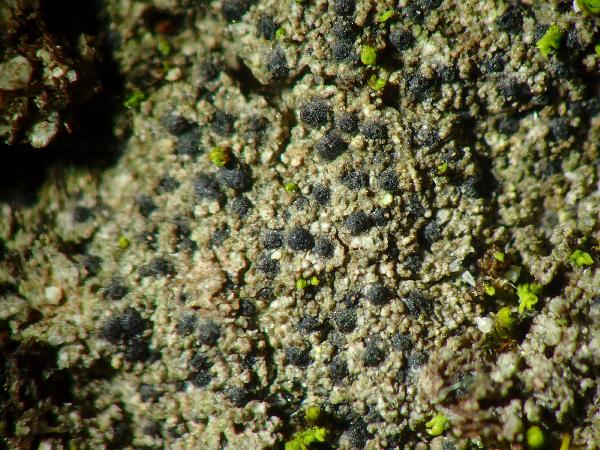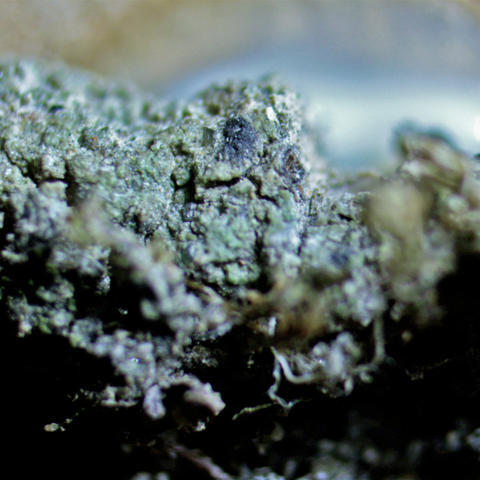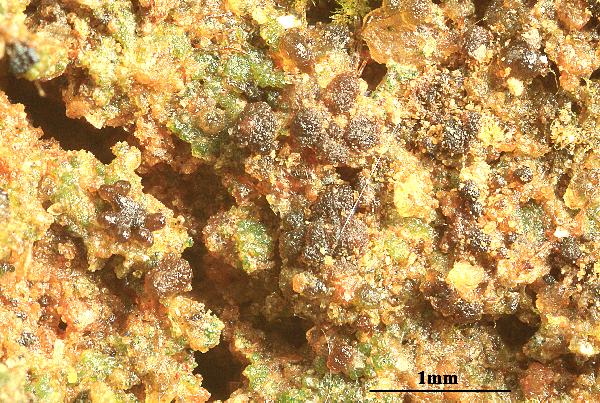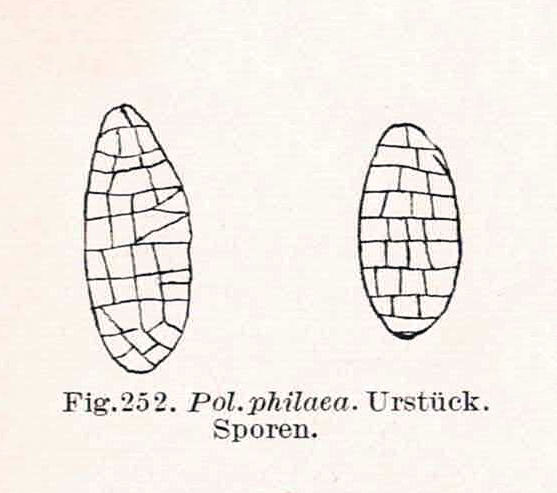Polyblastia philaea Zschacke
Rabenh. Krypt.-Flora, 9, 1, 1: 448, 1933.
Synonyms: Amphoroblastia philaea (Zschacke) Servít
Distribution: N - TAA (Nascimbene 2005).
Description: Thallus crustose, episubstratic, up to 120 μm thick, pale brown, when well-developed somewhat cartilaginous, forming a coherent, smooth to uneven crust, or with indistinct, convex, up to 0.16 mm wide areoles. Perithecia black, 2/3 to completely immersed in the thallus, 0.35-0.5(-0.6) mm across, only the ostiolar region not covered by thallus. Involucrellum scarcely visible as a structure separated from exciple; exciple black, with a thick, brown outer layer throughout; hamathecium of periphyses and periphysoids, interascal filaments absent; hymenial gel I+ red, K/I+ blue. Asci 8-spored, clavate, K/I-, fissitunicate, the wall thickened above, with a broad ocular chamber, dehiscent by extrusion of an endotunica to form a delicate rostrum. Ascospores muriform, hyaline to pale yellow, ellipsoid, (35-)44-55(-58) x (16-)18-24 μm. Photobiont chlorococcoid. Spot tests: K-, C-, KC-, P-, UV-. Chemistry: without lichen substances.Note: a very poorly known species found on soil, both on bare ground and amongst bryophytes near or above treeline.
Growth form: Crustose
Substrata: soil, terricolous mosses, and plant debris
Photobiont: green algae other than Trentepohlia
Reproductive strategy: mainly sexual
Poorly known taxon in need of further study
Commonnes-rarity: (info)
Alpine belt: extremely rare
Subalpine belt: extremely rare
Oromediterranean belt: absent
Montane belt: absent
Submediterranean belt: absent
Padanian area: absent
Humid submediterranean belt: absent
Humid mediterranean belt: absent
Dry mediterranean belt: absent
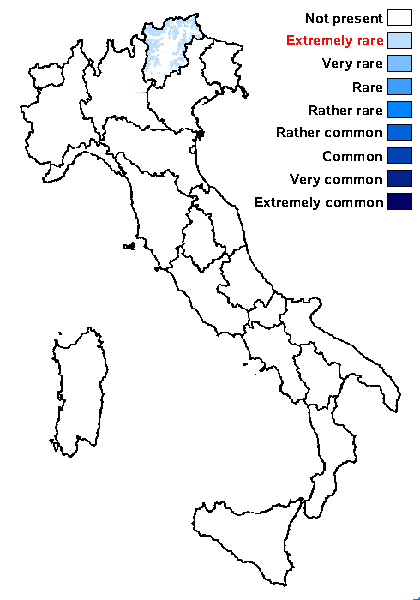
Predictive model
Herbarium samples
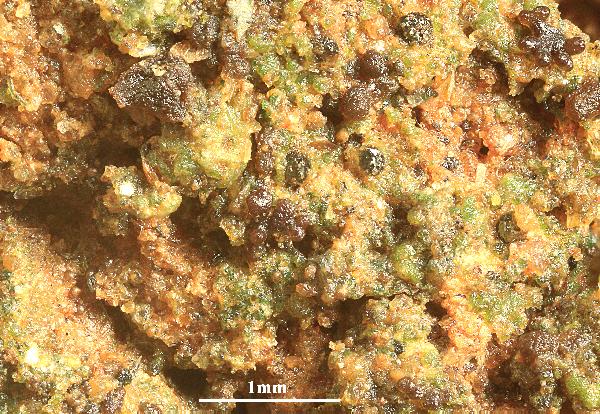

Felix Schumm - CC BY-SA 4.0
[ABL18329], Brazil, Sergipe, Assentamento Nossa Senhora Aparecida.
10°06'13'' S, 37°25'13'' W, 175 m. In caatinga on metamorphic schist
soil. Leg. M. Cáceres & A. Aptroot, (no. 18329), 19. Sept 2013, det. A.
Aptroot 2013.
Growth form: Crustose
Substrata: soil, terricolous mosses, and plant debris
Photobiont: green algae other than Trentepohlia
Reproductive strategy: mainly sexual
Poorly known taxon in need of further study
Commonnes-rarity: (info)
Alpine belt: extremely rare
Subalpine belt: extremely rare
Oromediterranean belt: absent
Montane belt: absent
Submediterranean belt: absent
Padanian area: absent
Humid submediterranean belt: absent
Humid mediterranean belt: absent
Dry mediterranean belt: absent

Predictive model
| Herbarium samples |


 INDEX FUNGORUM
INDEX FUNGORUM
 GBIF
GBIF
 DOLICHENS
DOLICHENS
